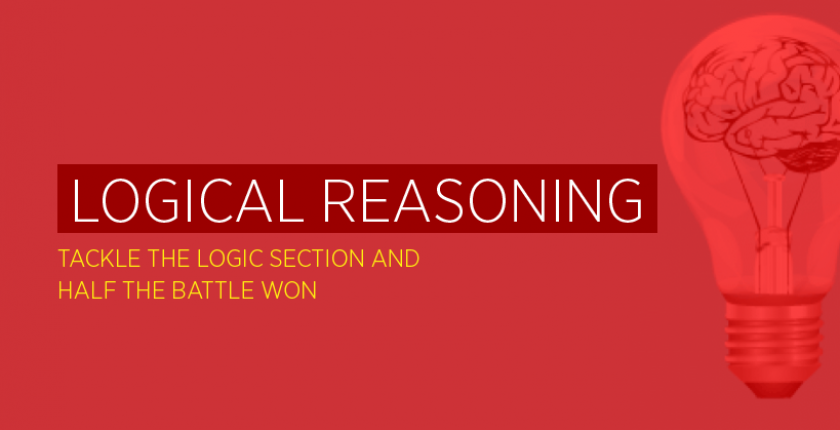The Logical Reasoning section in the Common Law Admission Test (CLAT) is a key component that evaluates a candidate’s ability to analyze, interpret, and draw conclusions from complex information. Scoring well in this section requires a combination of conceptual clarity, practice, and strategy.

Understanding the Logical Reasoning Section
The Logical Reasoning section primarily includes passages followed by questions that test your critical thinking skills. The questions are designed to evaluate your ability to:
- Identify arguments and their strengths or weaknesses.
- Draw inferences and conclusions.
- Recognize assumptions and implications.
- Analyze patterns and logical structures.
Typically, the section consists of short passages (around 300-400 words), with 4-5 questions per passage. The questions often include:
- Argument-based reasoning.
- Strengthening or weakening an argument.
- Identifying assumptions.
- Drawing inferences.
- Syllogisms and deductive reasoning.
Key Strategies to Approach the Logical Reasoning Section
1. Build a Strong Foundation
Understanding the basic principles of logic is essential. Focus on the following concepts:
- Arguments and Premises: Learn how arguments are constructed and how premises support conclusions.
- Inference vs. Assumption: Understand the difference between what is implied and what is assumed.
- Critical Thinking: Practice identifying logical flaws, inconsistencies, and valid arguments.
Resources such as books on logical reasoning, online tutorials, and practice questions can help solidify these concepts.
2. Develop Reading Comprehension Skills
Logical Reasoning passages require sharp reading skills. Work on:
- Reading for Structure: Identify the main argument, supporting evidence, and counterarguments.
- Spotting Key Phrases: Look for words like “however,” “therefore,” “because,” and “in conclusion” to understand the flow of logic.
- Avoiding Misinterpretation: Focus on what the passage explicitly states without adding assumptions.
Daily reading of editorials, opinion pieces, and analytical articles can be highly beneficial.
3. Practice Passage-Based Questions
CLAT’s Logical Reasoning section is passage-based, so practicing with similar question formats is crucial. Pay attention to:
- Question Types: Familiarize yourself with common types, such as identifying assumptions or evaluating the strength of an argument.
- Time Management: Practice solving passages under timed conditions to improve speed and accuracy.
- Mock Tests and PYQs: Use previous year’s questions and full-length mock tests to simulate the exam environment.
4. Focus on Time Efficiency
The Logical Reasoning section requires a balance between accuracy and speed. Here’s how to manage your time:
- Skim the Passage First: Get a general understanding of the passage before diving into the questions.
- Tackle Easier Questions First: Solve questions that you can answer confidently and quickly, then return to more challenging ones.
- Avoid Overthinking: Stick to what is stated in the passage without making unwarranted assumptions.
5. Learn to Eliminate Options
In many cases, eliminating incorrect options can lead you to the right answer. Strategies include:
- Spotting Extremes: Avoid options that use extreme language like “always” or “never” unless supported by the passage.
- Checking Consistency: Ensure the option aligns with the argument’s logic and tone.
- Cross-Referencing: Go back to the passage to verify the validity of an option.
6. Strengthen Critical Thinking
Critical thinking is at the core of logical reasoning. To enhance it:
- Solve puzzles and brain teasers.
- Practice syllogisms and logical deduction problems.
- Engage in discussions and debates to analyze different viewpoints.
7. Review and Analyze Mistakes
Mistakes are a valuable learning tool. After practicing questions:
- Identify patterns in errors (e.g., misinterpreting the passage or rushing through questions).
- Revisit concepts that need improvement.
- Learn from detailed solutions and explanations.
Common Challenges and How to Overcome Them
1. Difficulty in Understanding Passages
- Solution: Develop a habit of active reading. Highlight key points and summarize the passage in your mind.
2. Confusion Between Similar Answer Choices
- Solution: Re-read the question and eliminate options that do not align precisely with the passage’s argument.
3. Running Out of Time
- Solution: Practice time management by solving timed mock tests regularly and learning to prioritize questions.
4. Overcomplicating Questions
- Solution: Focus on what is explicitly stated and avoid adding unnecessary interpretations.
Day-Wise Preparation Plan
Week 1: Build Basics
- Study logical reasoning concepts (arguments, premises, conclusions).
- Practice standalone questions on assumptions, inferences, and argument evaluation.
Week 2: Improve Reading Skills
- Read 2-3 editorial articles daily and summarize their main arguments.
- Solve passage-based logical reasoning questions.
Week 3: Focus on Speed and Accuracy
- Practice solving passages under timed conditions.
- Work on eliminating incorrect options efficiently.
Week 4: Take Mock Tests and Analyze
- Attempt 2-3 full-length mock tests.
- Analyze mistakes and focus on weak areas.
- Review detailed explanations to refine your approach.
Tools and Resources
- Books:
- “A Modern Approach to Logical Reasoning” by R.S. Aggarwal.
- CLAT-specific preparation guides.
- Online Resources:
- CLAT preparation platforms like Vidhigya.
- Logical reasoning apps and websites for daily practice.
- Mock Tests:
- Enroll in CLAT mock test series to simulate the exam environment.
- Practice with previous year’s question papers.
- Daily Practice:
- Solve puzzles, crosswords, and Sudoku to sharpen your logical thinking skills.
Conclusion
Mastering the Logical Reasoning section in CLAT 2026 requires a blend of conceptual clarity, strategic practice, and critical thinking. By building a strong foundation, practicing passage-based questions, and analyzing your performance regularly, you can approach this section with confidence and precision. Stay consistent, trust your preparation, and make logical reasoning your stronghold in the exam. Good luck!



